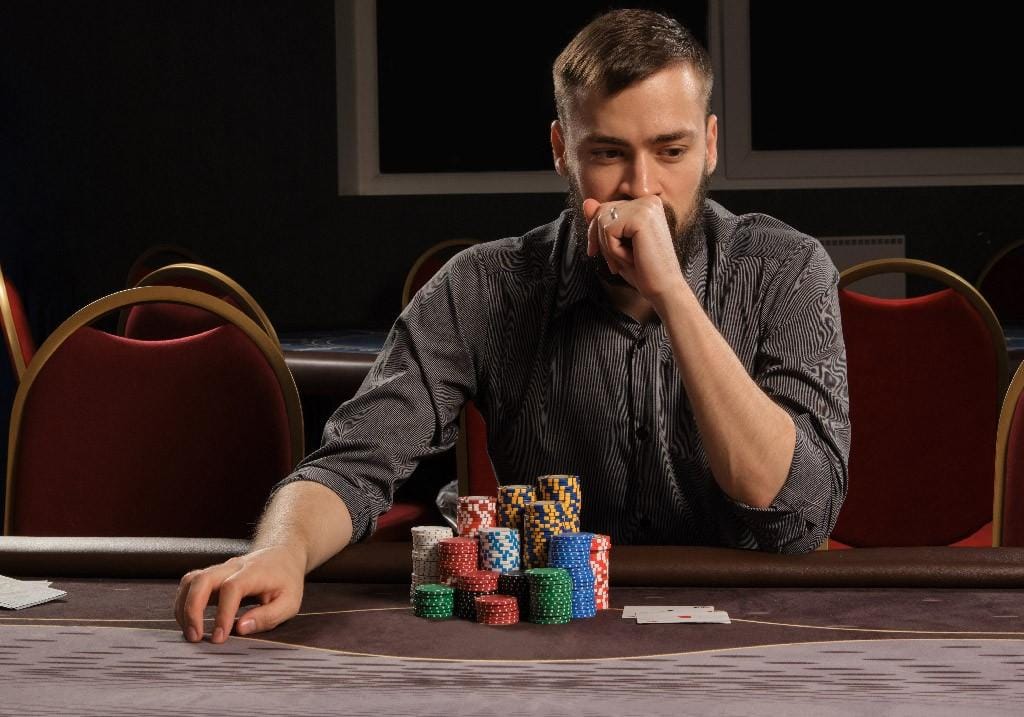
Poker is more than just luck it’s a game of skill, strategy, and mental toughness. Whether you play online or at a live table, staying focused can be the difference between winning and losing. Improving your poker focus enhances decision-making, reduces mistakes, and boosts overall performance.
In this guide, we’ll explore practical techniques, routines, and strategies used by poker pros to sharpen your focus and help you play your best game.
Why Poker Focus Matters
Even a brief lapse in focus can hurt your game. You might end up:
Misreading opponents’ betting patterns: Missing subtle cues can lead to wrong reads.
Overlooking key cards: Distraction could cause you to miss critical cards on the flop or river.
Making impulsive decisions: Acting without thinking can harm your bankroll.
Strong poker focus keeps you aware of every action at the table. Professional players spend hours honing their focus because it directly leads to more consistent success.
Common Factors That Affect Poker Focus
Understanding what breaks your focus is the first step to improving it. Common distractions include:
Mental fatigue: Long sessions without breaks make concentration hard.
Emotional tilt: Losing a hand or getting upset can cloud judgment.
Environmental distractions: Noise, interruptions, or multitasking pull attention away from the game.
Lack of routine: Playing without structure makes it difficult to stay consistently focused.
Recognizing these issues helps you create an environment and mindset that support sharper focus.
Techniques to Sharpen Your Poker Focus
1. Establish a Pre-Game Routine
A routine helps your brain prepare for concentration. Try:
Meditation or breathing exercises: Reduce stress and calm your mind before playing.
Review strategy notes: Go over past hands or guides to refresh your tactics.
Set session goals: Focus on objectives like staying disciplined or completing a certain number of hands.
2. Manage Your Playing Environment
A quiet and organized space makes a big difference.
Quiet space: Use a room without interruptions or noise-canceling headphones.
Minimal multitasking: Turn off notifications and avoid checking emails or social media.
Comfortable setup: Ensure ergonomic seating, proper lighting, and a clutter-free desk.
3. Take Regular Breaks
Breaks keep your concentration sharp.
Short breaks: Step away every hour for 5–10 minutes. Walk or stretch.
Mental reset: Avoid screens, hydrate, snack healthily, and take deep breaths.
Avoid overplaying: Set session limits to prevent fatigue.
4. Practice Mindfulness
Mindfulness trains your brain to stay present:
Focused breathing: Calm yourself after a big hand with deep breaths.
Body scan: Relax tense muscles to reduce fatigue.
Mindful observation: Watch cards and opponents carefully without judging immediately.
Building a Poker Player’s Routine
Consistent habits strengthen focus. Pros often follow routines:
Daily study: Review books, videos, or hand histories to sharpen strategy.
Regular practice: Play consistently, even in low-stakes games, to maintain skills.
Post-session review: Reflect on mistakes, successes, and emotional state to improve future play.
A strong routine trains your brain to stay focused automatically.
Nutrition and Physical Health
Your body impacts your mind. Staying healthy improves concentration:
Hydration: Drink enough water to prevent sluggishness.
Healthy diet: Eat omega-3s, lean proteins, and complex carbs for sustained energy.
Exercise: Daily activity boosts alertness and reduces stress.
Sleep: Aim for 7–9 hours for sharp thinking and fast reaction times.
Managing Tilt and Emotional Control
Emotions can ruin focus. “Tilt” happens when frustration or anger affects play.
Recognize triggers: Know what situations upset you.
Pause before acting: Step away, breathe, and clear your mind.
Detach from outcomes: Focus on making good decisions, not just winning.
Set limits: Stop playing if tilt sets in; return later with a fresh mindset.
Observing and Reading Opponent
Focus also means paying attention to others:
Watch betting patterns: Look for changes or consistencies in bets.
Timing tells: Fast or slow bets may reveal confidence or nervousness.
Learn from mistakes: Notice opponents’ errors to gain insights.
The more attentive you are, the better you can read the table.
Mental Exercises to Improve Focus
Train your brain outside of poker:
Visualization: Imagine scenarios and practice calm, correct decisions.
Memory games: Strengthen memory for hands and betting patterns.
Concentration drills: Practice single-task focus and gradually increase duration.
Using Technology to Aid Focus
Some tools support concentration:
Poker tracking software: Save hand histories and track stats to reduce mental load.
Timers: Remind yourself to take breaks.
Noise-canceling headphones: Block distractions when playing online.
Conclusion: Sharpening Your Poker Focus
Strong focus is the foundation of consistent poker success. By setting a pre-game routine, managing your environment, taking breaks, practicing mindfulness, staying healthy, controlling emotions, observing opponents, and doing mental exercises, you’ll dramatically improve your concentration.
Focus isn’t a natural talent it’s a skill you can train. Whether you want to play professionally or simply improve your next online session, boosting poker focus helps you make smarter decisions, achieve better results, and enjoy the game more.
Ready to take your skills to the next level? Find your next poker club in seconds at BluffingMonkeys.com/club-list. You can also explore more poker tips, tools, and resources on BluffingMonkeys.com. Our live-chat crew is available 24/7 to guide you through a fast signup. See you at the tables!
FAQs
Q1: What is poker focus?
Poker focus is keeping your mind clear and attentive during a game, staying aware of everything at the table.
Q2: How can I improve focus during long sessions?
Take breaks, practice mindfulness, stick to routines, and play in distraction-free areas.
Q3: Can physical health affect focus?
Yes. Hydration, diet, sleep, and exercise all help maintain alertness and mental sharpness.
Q4: Do professionals use focus techniques?
Absolutely. Pros follow routines, practice mental exercises, and stay mindful to maintain peak concentration.
